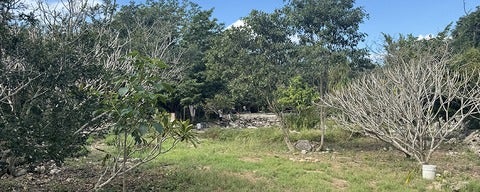Powering smart irrigation with second life batteries: Waterloo’s breakthrough approach for Yucatán farmers
Carter McCrae, a master’s student in Climate Change, and Aidan Iapicco, an MSc candidate in Biogeochemistry and a student in the Collaborative Water Program (CWP), are developing a solution that links water, energy, and circular economy thinking. It is the first project to combine solar panel pumps and repurposed electric vehicle batteries in a system that will enable millions of small farms and billions of people to access water for irrigation. The solution aims to reduce costs and improve reliability for farmers facing growing water and energy constraints.









